-
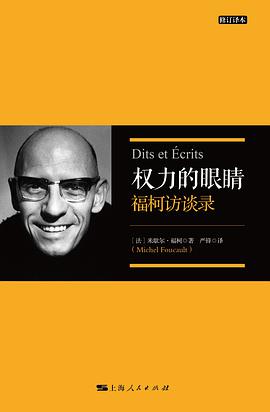
权力的眼睛
◎福柯被布罗代尔誉为“法国当代最光彩夺目的思想家”,他的思想深刻影响了后结构主义、后现代主义、女性主义等各种时代思潮。
◎福柯的思想深邃、多变,他的著作也晦涩、难懂,《权力的眼睛》一书通过选编福柯生前发表的19篇对话、访谈、演讲,生动呈现了福柯的思想肖像。揭开概念迷雾,我们可以更真实地触摸福柯。
福柯不是一位学院派哲学家,因为他关注的对象——疯人院、监狱、妇女、儿童等——初看起来不那么“哲学”。然而正是由此,福柯发现了笼罩在世人身上的隐形的权力之网。当下,我们在互联网上的蛛丝马迹都被记录、分析,以便精准化营销。权力之眼不仅仅是圆形监狱、无处不在的摄像头,还是不断迭代的大数据。人人都是透明人。
福柯并未远去,他的思想仍然值得我们反复咀嚼。通过他生前留下的大量访谈和演讲,我们可以更便捷地了解他在《癫狂的历史》《词与物》《规训与惩罚》《性史》等著作中表达的深邃哲思。让我们一起走近这位“当代最光彩夺目的思想家”!
-
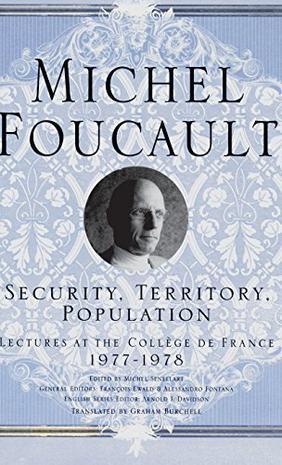
Security, Territory, Population
-
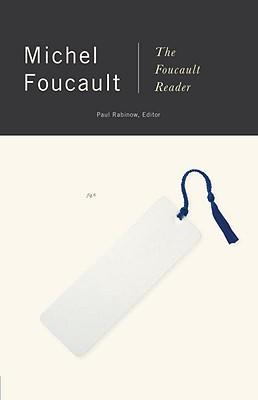
The Foucault Reader
Michel Foucault was one of the most influential thinkers in the contemporary world, someone whose work has affected the teaching of half a dozen disciplines ranging from literary criticism to the history of criminology. But of his many books, not one offers a satisfactory introduction to the entire complex body of his work. The Foucault Reader was commissioned precisely to serve that purpose. . The Reader contains selections from each area of Foucault's work as well as a wealth of previously unpublished writings, including important material written especially for this volume, the preface to the long-awaited second volume of The History of Sexuality, and interviews with Foucault himself, in the course of which he discussed his philosophy at first hand and with unprecedented candor. . This philosophy comprises an astonishing intellectual enterprise: a minute and ongoing investigation of the nature of power in society. Foucault's analyses of this power as it manifests itself in society, schools, hospitals, factories, homes, families, and other forms of organized society are brought together in The Foucault Reader to create an overview of this theme and of the broad social and political vision that underlies it. . . From the Inside Flap Michel Foucault was one of the most influential thinkers in the contemporary world, someone whose work has affected the teaching of half a dozen disciplines ranging from literary criticism to the history of criminology. But of his many books, not one offers a satisfactory introduction to the entire complex body of his work. The Foucault Reader was commissioned precisely to serve that purpose. . The Reader contains selections from each area of Foucault's work as well as a wealth of previously unpublished writings, including important material written especially for this volume, the preface to the long-awaited second volume of The History of Sexuality, and interviews with Foucault himself, in the course of which he discussed his philosophy at first hand and with unprecedented candor. . This philosophy comprises an astonishing intellectual enterprise: a minute and ongoing investigation of the nature of power in society. Foucault's analyses of this power as it manifests itself in society, schools, hospitals, factories, homes, families, and other forms of organized society are brought together in The Foucault Reader to create an overview of this theme and of the broad social and political vision that underlies it. -
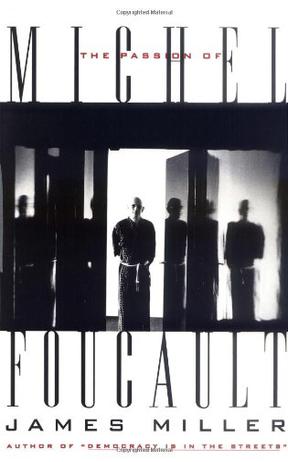
The Passion of Michel Foucault
This is a study of Michel Foucault's life in philosophy. Foucault was probably the most influential Western philosopher since Sartre. Hailed as an original thinker, he has also been criticized as a dangerous and irresponsible nihilist. Drawing on extensive research, this book focuses on the philosopher's obsession with death and his taste for sado-masochistic sex. By the author of "Democracy in the Streets". . Based on extensive new research and a bold interpretation of the man and his texts, The Passion of Michel Foucault is a startling look at one of this century's most influential philosophers. It chronicles every stage of Foucault's personal and professional odyssey, from his early interest in dreams to his final preoccupation with sexuality and the nature of personal identity. -
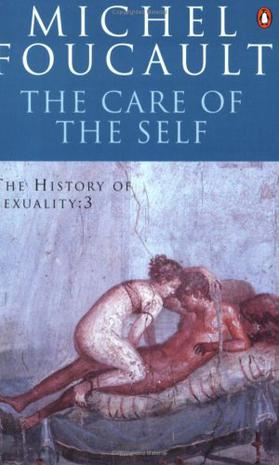
The History of Sexuality
This is the third volume of Foucault's "History of Sexuality". A sociologist and historian of ideas, Foucault's other works include "Madness and Civilization", "The Archaeology of Knowledge", "The Birth of the Clinic" and "Discipline and Punish". -
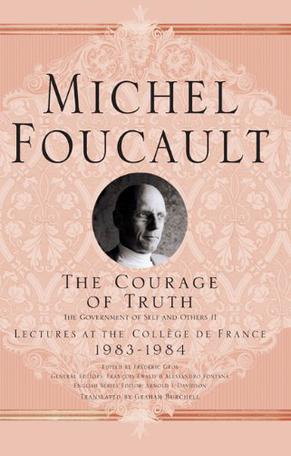
The Courage of Truth
The course given by Michel Foucault from February to March 1984, under the title The Courage of Truth, was his last at the Collège de France. His death shortly after, on June 25th, tempts us to detect a philosophical testament in these lectures, especially in view of the prominence they give to the theme of death, notably through a reinterpretation of Socrates' last words–'Crito, we owe a cock to Asclepius'– which, with Georges Dumézil, Foucault understands as the expression of a profound gratitude towards philosophy for its cure of the only serious illness: that of false opinions and prejudices. These lectures continue and radicalize the analyses of those of the previous year. Foucault's 1983 lectures investigated the function of 'truth telling' in politics in order to establish courage and conviction as ethical conditions for democracy irreducible to the formal rules of consensus. With the Cynics, this manifestation of the truth no longer appears simply as a risky speaking out, but in the very substance of existence. In fact, Foucault offers an incisive study of ancient Cynicism as practical philosophy, athleticism of the truth, public provocation, and ascetic sovereignty. The scandal of the true life is constructed in opposition to Platonism and its world of transcendent intelligible Forms. 'There is no establishment of the truth without an essential position of otherness. The truth is never the same. There can be truth only in the form of the other world and the other life.'